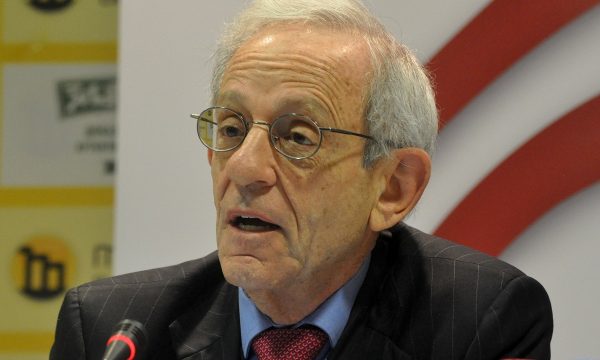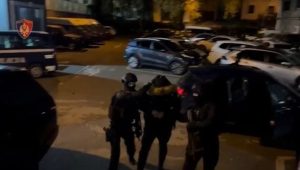At their first meeting, Prime Minister Albin Kurti and President Aleksandar Vucic disagreed on nothing but to see each other again in Brussels.
This Monday will pit the two Balkan leaders face-to-face for the second time to expose their deeply opposing positions to European facilitators.
For the completely new spirit promised in the saponified negotiations, Johns Hopkins University professor Daniel Serwer justifies the Kosovar prime minister by saying that he should underline his approach differently since the past years of dialogue have not been productive.
In an interview with the portal Klankosova.tv, he said that Kosovo should not be in a hurry to sign an agreement with Serbia that does not do it any good.
The American analyst thinks that the talks in Brussels will not give the intended result even for a pretty good time, therefore Kosovo should use this time gap to strengthen its international support. And in this regard, it encourages Kosovo to be more ambitious to break down barriers with powerful states that do not recognize Kosovo as a state.
“President Vuiqiiq sees little perspective with EU membership in the near future and as a result has turned more to Moscow and Beijing than to Brussels. He has made it extremely clear that he is not prepared for a major move ahead of next year’s Serbian presidential election. In these circumstances, Kosovo must do what it can to use the time to strengthen its position in the negotiations. Recent moves by non-recognizing countries such as Greece and Spain to improve their relations with Kosovo are exactly what Kosovo needs. “I would like Pristina to improve relations with Beijing, which is more interested in trade in the Balkans than in politics.”
Strengthening the position of the internationals, Serwer says that Kosovo should be ready to leave a bad agreement with Serbia and sign a better one instead.
Moreover, the American professor urges Kosovo to seek reciprocity with Serbia on every issue.
“Kosovo must insist on equality and reciprocity. If something is decided for Serbs in Kosovo, the equivalent should be available to Albanians within Serbia as well. The Specialized Chambers have violated this principle. “I would like their jurisdiction to be extended to Serbia, where the Albanian-American brothers Bytyqi were killed after the war.”
Serwer also commented on the four proposals of Kurti with which he went in front of Vuiqiiq in the first meeting, which he says that he is basically of the same mind with Kurti.
“I definitely agree with Albin on reciprocity in general, although I may have some disagreements with how it is implemented in practice. “I also agree that missing persons of all ethnicities should be identified and their remains returned.”
“I also agree with CEFTA / SEFTA. Mini-Schengen seems to me a poorly defined enterprise, in which Kosovo is clearly not equal. “I also like the idea of a non-aggressive agreement, but which Serbia will be reluctant to do because it means the sovereignty of Kosovo and Belgrade would like NATO to sign as well.”
Kritik spoke about the position of the European Union towards Kosovo, which he said would be able to offer ideas for resolving problems between Kosovo and Serbia only if it recognized the sovereignty and territorial integrity of Kosovo, as well as liberalize it. visa.
While for the United States of America he says that they will be invited again when the end of the dispute is needed.
The US should support the EU, but it will also be called upon to “resolve” Kosovo. “I think Brussels and Washington should form an entity like the International Civilian Office to monitor the implementation of the agreements reached in the dialogue as well as to mention and shame those who fail to implement them.”
Regarding the role of the Government of Kosovo for Serbs living in Kosovo, the expert on Balkan issues said that he should do everything he can to improve relations with Serbs and other communities within Kosovo, including the identification and return of the remains of missing persons, the implementation of the Constitutional Court decision on the property of the Deçan monastery and the protection of all communities from interethnic violence.




